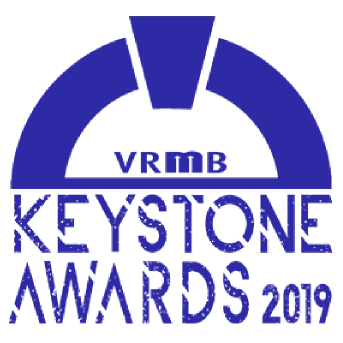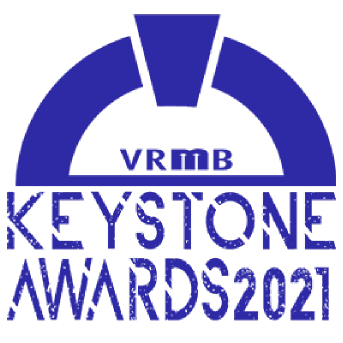Are you just starting in the vacation rental industry? If you’re up and running on Airbnb and Vrbo, it’s a great start. But now you probably want to attract more guests, reduce vacancy rates, and boost your revenue. This is where a marketing strategy that’s easy to understand, and consequently expand and scale comes in. This guide was written to answer most of the vacation rental marketing strategies new hosts and managers have. After all, marketing your vacation rental is just as crucial as decorating, cleaning, and offering guests a local experience.
Where can I post my vacation rental for free?
If you’re starting in the vacation rental industry, you probably don’t have an enormous marketing budget. So it’s critical that you post and advertise your rental cheaply. Luckily, there’s a host of vacation rental platforms that let you post a property for free. The most popular include:

The list above is a starting point for vacation rental owners but these companies command the most significant market share in the industry. On top of that, Airbnb and Vrbo & HomeAway make it easy to set up a listing. So if you’re starting, they’re a must for listing a property. Also note that on Booking.com and TripAdvisor, you’ll be competing with regular hotels. Airbnb, VRBO, HomeAway, and FlipKey are exclusive to vacation rentals.
It’s important to note that, while it’s free to post and list your properties on these sites, there’s no such thing as a free lunch. Once a guest books a reservation, the listing site (Airbnb, Vrbo, Booking.com, etc) will charge a fee. The fee is applied automatically and is taken into account in your monthly payout.
Is there a difference between Vrbo and HomeAway?
Both Vrbo and HomeAway are owned by the same parent company (the Expedia Group). In 2020 the Expedia Group decided to consolidate the HomeAway brand into Vrbo. Other sites in the Expedia Group portfolio now also redirect to Vrbo.
What are the other sites to advertise a vacation rental?
There are alternatives to Airbnb, Vrbo and Booking.com. While they don’t get as much traffic, they still have the potential to get you more bookings. They also work on the same principle as the major listing sites: you advertise for free and only pay when you book a reservation. Here are a few more to consider:

There are pros to using a multitude of sites to list your rental, but there is one significant drawback – the logistics. Keeping track of all of your listings on a bunch of different websites can get overwhelming. Not to mention that if you get a booking on one site, you’ll have to make the property unavailable on all the other sites. Canceling because of a double-booking can get you banned if you’re not careful. That said, once you get your vacation rental empire up and running, powerful software like Hostfully’s Property Management Platform (PMP) will be a great addition to your host toolbelt. PMPs automatically manage your properties across all sites and centralize other functions. So if you get a booking on Airbnb, the software automatically makes the property unavailable on VRBO and HomeAway.
Listing on multiple websites is a powerful, cheap and easily scalable marketing strategy. It’s called multi-channel distribution or enhanced distribution. The strategy relies on software to manage a central calendar and send updates on the status of your properties to all the sites you list on. There are a few ways to implement multi-channel distribution, which we go over in this paper:
Important note on the cost of free listings
While free to advertise on, all the listing sites charge a fee for every booking. In other words, you don’t pay to list, but you pay once you’re generating revenue.
It’s about weighing your options. Do you want to pay for advertising upfront, before you’re guaranteed bookings? Or does it make more sense to advertise for free and only worry about paying when you start making an income? If you’re new to vacation rental marketing, it’s probably best to minimize risk and only pay when you’re generating revenue.
How much are the booking fees on Airbnb, Vrbo, and Booking.com?
It helps to know up front how much the vacation rental platform will charge you for marketing and advertising. This will affect your bottom-line and could make the difference between running a profitable rental or operating with a loss.
Here’s a quick breakdown of these costs:

* The host can choose a per year flat fee or a pay-per-booking model. If you’re operating a highly-profitable or luxury rental, it might be cheaper in the long run to pay the $499 fee up front.
** Booking.com doesn’t have credit card fees but they require hosts get secure merchant accounts. These usually run 3% of the transaction amount.
What is the best vacation rental website to list my home on?
Everyone is always on the lookout for the “best,” primarily when it affects their ability to generate income. There are two questions you should be asking:
Which short term rental platform is better: Airbnb, VRBO or HomeAway?
Knowing your options is step one in finding the best website for your rental. For short term rentals, the go-to platforms include Airbnb, VRBO, and HomeAway. As the latter two are part of the same family, you’ll find plenty of similarities. Here’s a quick breakdown on the pros and cons for each:

Which option fits you best depends on what you’re looking to list. The majority of hosts should list on all three platforms to increase the marketing exposure of their vacation rentals. However, hosts that rent out an entire home that regularly books can get away with VRBO and HomeAway.
Which sites are cheaper than Airbnb, VRBO or HomeAway?
Cost is always a primary concern when marketing your vacation rental. If the fees charged by Airbnb, HomeAway, and VRBO dig too deep into your bottom-line, consider the following options:
- HomeStay: Listing is free for the hosts. If the host selected a deposit option, HomeStay charges 3% of the held funds. Guests pay 15%.
- TripAdvisor: Listing is free, host fees are 3%. Guests pay 8-16% fees.
- NicheEscapes: Listing is free but 3% booking fees or $163 annual subscription (similar to VRBO and HomeAway). Guests pay 10% fees.
- Agoda: No host fees! Guest fees vary by location.
Note that other than TripAdvisor, all the sites in this list get considerably less traffic than Airbnb, VRBO, and HomeAway. You’ll have to make a decision: pay less host fees vs. risk your property rent less often.
What is the best way to market a vacation rental?
With all these platforms available for advertising your vacation rental, you’re probably wondering what’s the best option for a beginner. If you’re starting, your best choice – without a doubt – is to list on Airbnb. As we mentioned earlier, it’s free to list a property on Airbnb, and you only get charged when you start generating revenue. You also have to keep in mind that Airbnb’s monthly traffic is the largest between VRBO/HomeAway and FlipKey.
For beginner hosts, getting a bit of experience marketing the vacation rental before listing on Booking.com and TripAdvisor is advisable. That’s because you’ll be competing against seasoned professionals and hotel chains. Also, don’t forget that the more platforms you list on, the more logistical acrobatics you’ll have to do when you get a booking.
Instead, focus on getting your vacation rental’s marketing right before spreading out. That includes basics like:
- Taking flawless photos.
- Figuring out fair nightly rates.
- Writing a punchy listing description.
These three actions don’t cost anything for the host but help convert potential visitors into guests.
What is the most effective way of marketing a vacation rental home?
Of course, being listed on Airbnb and Vrbo is only the start when it comes to marketing your vacation rental. While listing on a major platform is the most cost-effective and most accessible thing to do, there are a few other options you can consider:
- Your decor should help brand your short-term rental: this is cost-free, considering you have to decorate the vacation rental anyways. Make sure decor matches your property name and be consistent from one room to another.
- Create a website for your vacation rental: you’d be surprised how easy it is to create a professional-looking, branded, and polished website these days. Services like Squarespace and Wix make it as easy as a drag and drop! Hosting is also really cheap if you bundle up with their other services. In recent years, vacation rental software providers like Hostfully have developed turnkey direct booking site options for hosts. These pre-built direct booking sites come with calendar widgets and automatically sync with your property management software. If you want to learn more about direct booking sites (including pre-built ones) and if they are worth it for your business, please download this in-depth report:
- Keep a steady social media presence: it’s incredibly easy to set up an Instagram account and start a hashtag for your property. When guests come over, invite them to hashtag your property in their posts. It’s free traffic, and that means more opportunities to book guests! Other cheap and efficient options include creating a Google Places location.
How do I make my vacation rental stand out?
The more you stand out, the more views you will receive. The more of those you get, the more bookings you will have. The more your rental books, the more vacation rental sites’ search engines will present your property to potential guests. So standing out is important. Here are a few tips you can implement:
Riches are in the niches
You’re not going to appeal to everyone with your rental, so you shouldn’t even try. Choose one or two niches (luxury travel, business trips, family outings, couples retreat, relax and disconnect, etc.), so you’re not spreading your reach thin. When you can focus on one or a pair of niches, you can put all of your efforts into attracting those kinds of travelers with the proper messaging and branding. Write your description to engage with those niches and focus amenities on what is important to them.
Market your property as an experience, not just a bed
Comfortable sleep is now standard in the vacation rental industry, so you aren’t going to attract or woo guests by explaining how great your pillows are. Instead, advertise your vacation rental as an experience. Guests should know that when they stay at your place, they’ll experience something unique. But how do you implement this? Simple. Go back to your branding and explain in one paragraph what your property is all about.
Learn to photograph (or hire a photographer)
Without good images, there is no selling your rental. Guests need to see what they’re about to book in vibrant photos. If you’re unable to snap the great pictures, it’s best to hire a photographer. But if you’re on a budget or like DIYing, to get the best photos try this:
- Clean the space and declutter
- Ensure the rental is bright but that the pictures aren’t washed out.
- Use a wide-angle lens to avoid making it look cramped.
- Don’t Photoshop details.
- Provide daytime exterior images.
- Take photos at a level and straight on. Try not to point upwards or downwards.
- Photograph textures and closeups.
Write an engaging listing
While the images are what draw attention to your property, it’s the listing that defines a vacation rental for a guest. Write a listing that speaks to the property’s personality and to the niche you’re hitting. Engage with prospective guests through keywords that speak to the amenities you offer and what’s nearby. Be descriptive, but keep it simple enough so it’s not a long novel.
Respond quickly to inquiries
When prospective guests reach out, you should assume they’ve done so to several other properties. Don’t be the one that responds last. When you see an inquiry come in, answer it as soon as . The longer you wait, the more you risk having them lose interest or choose another property. If you’re inattentive with their inquiry, it sends a message about how much effort you’ll put into their stay.
Being quick to respond also sends a signal to platforms like Airbnb and VRBO. They use response time to see how engaged a host is on the platform. This affects whether your property is shown first in future searches made by potential guests. And why is being first important? Think of it like Google. How often do you click on a search result on the front page vs. the third one?
Get out there and advertise that vacation rental!
You have the tools you need to market your vacation rental. Utilize the resources at your disposal to draw attention to your short-term rental and watch as the bookings start piling up, and your monthly income gets a nice boost.











